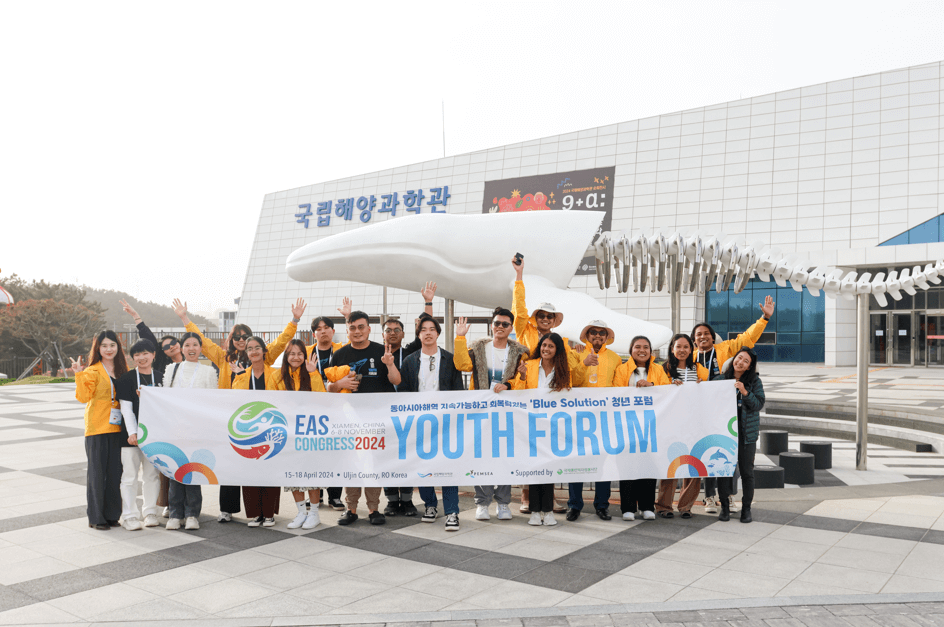PEMSEA awards ICM certification to selected sites in East Asia
Tuesday, 15 December 2020

Acknowledging the contribution of local governments in the sustainable development of the Seas of East Asia through their Integrated Coastal Management (ICM) programs, PEMSEA recently announced the re-certification and advancement to the next level of certification to selected ICM sites in the region. PEMSEA’s ICM System Certification is designed to review and assess the local governments’ implementation of the ICM system and to recognize their continuous improvement and/or exceptionally good performance.
Achieving ICM Level 1 re-certification of the ICM System are the following local governments:
| Country | Local government |
| CHINA |
|
| |
| |
| CAMBODIA |
|
| PHILIPPINES |
|
| VIET NAM |
|
From 2019 to 2020, the PRF also conducted the assessment of four local governments under the ICM System based on the requirements of the ICM Level 2 - Effective ICM System Level. Achieving ICM Level 2 Certification of the ICM System are the following local governments:
| Country | Local government |
| CHINA |
|
| |
| PHILIPPINES |
|
|
“We wish to congratulate the local governments re-certified to ICM System Level 1 and upgraded to ICM System Level 2, and acknowledge their commitment to protect the environment and fulfill the needs and expectations of their stakeholders through ICM,” said Aimee T. Gonzales, PEMSEA Executive Director.
“PEMSEA is encouraging other local governments to pursue certification of their ICM system. For those already certified, we encourage you to continually improve your established system to achieve better benefits and measured success, and to pursue higher levels of certification for your ICM system,” Ms. Gonzales added.
What is the ICM System Certification?
PEMSEA established and implemented the ICM System Certification in 2015 as part of its services. The ICM System Certification formally evaluates, acknowledges and certifies that a local government’s ICM system conforms to the requirements of the ICM Code. The ICM Code details good governance practices for an ICM system, including a long-term vision and strategy for the coastal area, an implementation plan, a multisectoral coordinating mechanism and supporting legislation, as well as enabling conditions for public awareness, capacity development and financing mechanisms. In addition to governance, the ICM Code covers the development and implementation of management programs to address priority issues including: natural and man-made hazard prevention and management; habitat protection, restoration and management; water use and supply management; food security and livelihood management; and pollution reduction and waste management.
Three levels of certification
The ICM System Certification is structured as a tri-level approach to encourage local government to strive for excellence through continuous improvement. The Three Levels of Certification are:
- Level 1: Proficient in ICM Governance Level (The ICM System is developed and implemented compliant with the Level 1 Requirements of the ICM Code);
- Level 2: Effective ICM System Level (Significant progress in building sound process and environmental benefits demonstrated in priority areas and consistent with requirements of ISO 14001 and ISO 9001);
- Level 3: Blue Economy Level (High level of excellence in ICM with sustainable development benefits demonstrated, maintained and continually improved).
To achieve certification, a local government’s ICM system needs to undergo the ICM System Development, Implementation and Continuous Improvement Process, which is comprised of four phases: Phase 1: Initial Status Review; Phase 2: Strategic Planning; Phase 3: System Development and Documentation; and Phase 4: Monitoring and Measurement.
In 2015, with the support of the PEMSEA Network of Local Government (PNLG), initial status reviews of the ICM System were conducted on 15 local governments in the region. The PRF conducted the desktop and onsite audits of the sites. At the 2015 East Asian Seas (EAS) Congress in Da Nang, Viet Nam, all 15 local governments were awarded ICM Level 1 Certification of their ICM Systems.
What are the benefits of receiving an ICM system certification?
Certified local governments gain substantial benefits from using the ICM Code and the ICM System Certification. Examples of these benefits include:
- The PEMSEA ICM System certification improves the credibility and image of the certified local government - because the ICM Certification uses the ICM Code that was developed based on best practices in ICM and the international standards for quality and environmental management systems (ISO 9001 and ISO 14001 internationally recognized standard).
- The ICM System certification enhances citizens’, stakeholders’, funding agencies’ and interested parties’ confidence in the local government as it shows that the latter has established and implemented the ICM System properly following the framework, processes and dynamics of an ICM and international standards for management systems.
- The ICM System Certification helps local governments to move the process forward to establish (for new sites) and sustain (for mature sites) an ICM system.
- The Certification drives the local governments to achieve improved results in sustainable development as the PEMSEA certification process goes beyond the typical trend of using the concept of “compliance” to standard, as the PEMSEA assessment criteria involves the evaluation of the degree of performance/impact achieved through the implementation of the ICM system.
For more information on PEMSEA’s ICM System Certification, click here.



